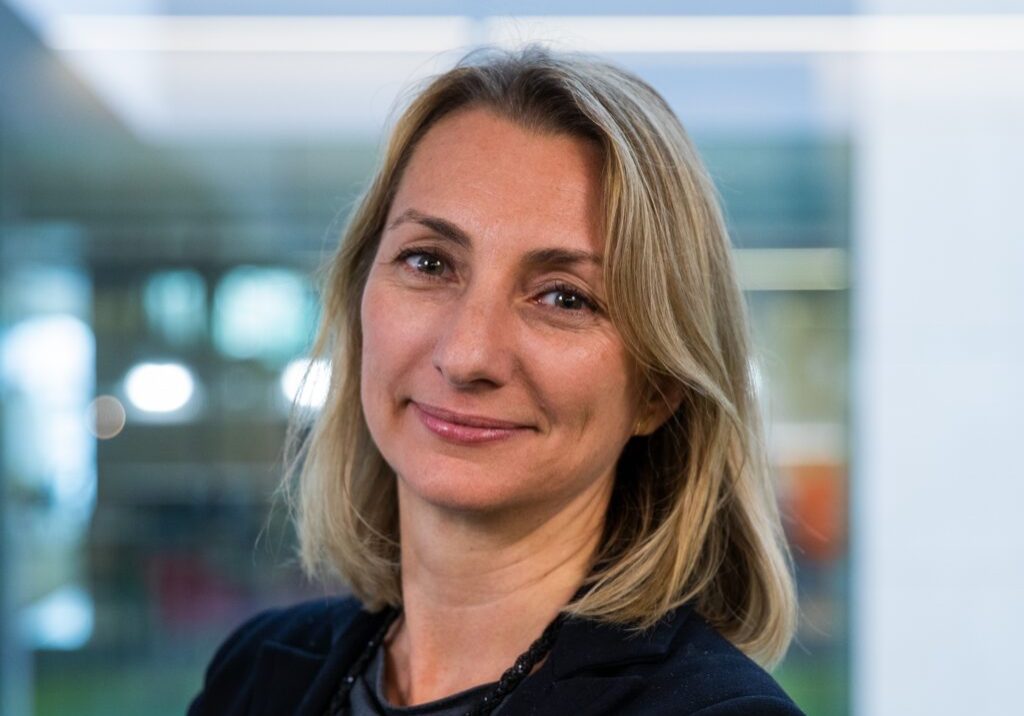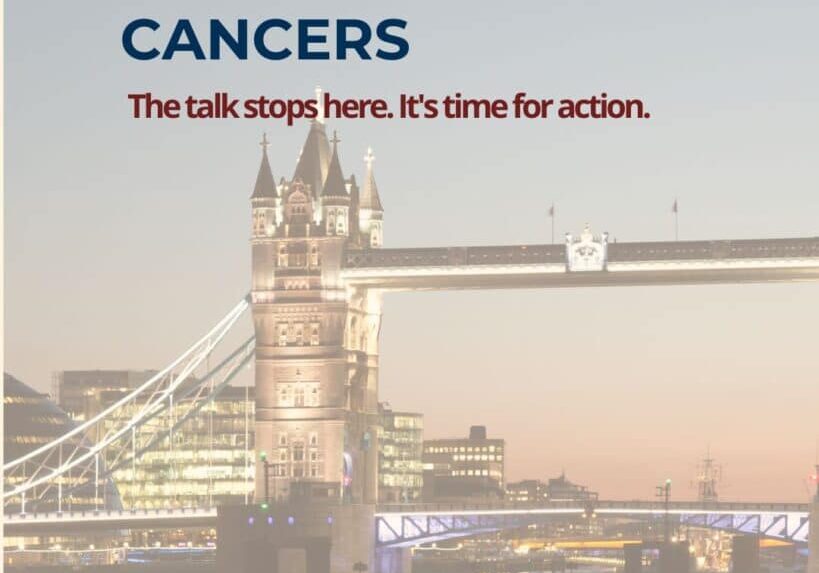Researchers launch project to help reduce Head and Neck cancer inequalities
A group of leading researchers are set to investigate why people living in certain parts of the country have some of the worst survival rates of Head and Neck cancers, compared with the rest of the England and Wales.
The project, jointly funded by Oracle Cancer Trust and North West Cancer Research (NWCR), is set to analyse the impact of the disease across England and Wales, focusing on how incidences have increased and the number of people surviving has dropped.
Head and Neck cancers account for around 30 different types of cancer, including the mouth, throat and voice box, with smoking and excessive alcohol intake proven to be major causes.
Experts say those living in deprived areas are more likely to develop Head and Neck cancer, creating major inequalities and differing chances of survival.
Now, Oracle Cancer Trust and North West Cancer Research want to identify why such differences exists and, crucially, what can be done to solve the problem.
Researchers based at Newcastle University will compare incidence rates across deprived areas and more affluent areas, before looking at how many people have survived the illness.
The year-long investigation, which launches in April, will ultimately see patients, health professionals and charities come together to look at what changes can be made to improve Head and Neck cancer rates in the region.
Alastair Richards, CEO of North West Cancer Research, said: “Sadly, we are already aware of the inequalities that exist when it comes to cancer, with the North West and North Wales being one of the worst affected regions in the country. This is largely due to us being home to some of the most deprived areas – this should not be the case.
“Head and Neck cancers, in particular, majorly impact the people living here. As such, it is a key focus for us as a charity, not only funding research like this, but also getting out into the community to raise awareness of the signs and symptoms, signposting people to advice and support.
“This study will help pave the way for us better understanding how we can tackle the inequalities and, hopefully, become closer to creating a cancer-free future.”
Since the early 1990s, cases of Head and Neck cancer have increased by 35% in the UK and is now the fourth most common cancer type in men.
And, since the Covid-19 pandemic, cases in deprived areas of the UK are almost double the UK national average, a trend which experts believe will continue.
As part of the project, researchers will also look into how the pandemic impacted diagnoses and treatment, focusing on whether regional inequalities are wider than before and why this has happened.
Tamara Kahn, CEO of Oracle Cancer Trust, says “As a Charity we work tirelessly to advance the fight against Head and Neck cancer and ensure that patients, their families and the medical community get as much support as possible to be beat the odds with regards to this disease.
“We want to ensure everyone has the best chance of surviving Head and Neck cancer but there are rising inequalities in the UK. Around 2,300 cases of Head and Neck Cancers each year in England are linked with deprivation. We are delighted to be co-funding this project and awarding the grant to Newcastle University, having better access to data to be able to address this is issue vital.” Find out more about the signs and symtoms here

Using the power of football to help prevent cancer
This week, Oracle Head & Neck Cancer UK has launched an important awareness campaign in partnership with Bromley FC, using the reach of football to shine a light on head and neck cancer prevention and the life-saving importance of the HPV vaccine. Throughout the week, Bromley FC is sharing trusted health information with its supporters,…

Cancer Care: Why Mental Health Support Must Be Part of Every Cancer Journey
Oracle Head & Neck Cancer UK is proud to support the Daily Express Cancer Care campaign, a powerful series that shines a light on the often unseen emotional toll of cancer – and the urgent need for better psychological support for everyone affected. The campaign published over the past three weeks featured voices from across…

Ground-breaking blood test shows promise for early detection of head & neck and other hard-to-screen cancers
A new large-scale trial has found that the blood-based screening test known as Galleri test can detect more than 50 types of cancer – including cancers of the head and neck, which currently have no routine screening programme – and may significantly boost early diagnosis. The trial showed that, when used alongside existing screening methods,…

2 Minutes to Save Your Life: Oracle Launches HeadNeckCheck Campaign for Make Sense Week
This Make Sense Week (15-20 September), the European-wide head and neck cancer awareness initiative, Oracle Head & Neck Cancer UK, is championing both prevention and early detection – recognising that stopping cancer before it starts is just as vital as catching it early. Two Ways to Fight Cancer This Week Prevention Today: Head and neck…

Leadership update
After four successful years as CEO, Tamara Kahn has transformed Oracle into a respected national voice for head and neck cancer patients. She established a national presence, created a four-pillar RACE strategy (Research, Awareness, Collaboration and Patient/Community Engagement) and built strong policy influence. With these foundations now firmly in place, Tamara will transition from her…

Finding Light in Adversity: Seven inspiring stories through head and neck cancer
A new collection of patient stories from Oracle Head and Neck Cancer UK reveals how individuals facing head and neck cancer have discovered unexpected sources of strength, purpose and even joy during their treatment and recovery. The seven contributors share remarkably similar themes despite their unique journeys. Almost all emphasise the power of maintaining a…

NHS to fast-track patients with head and neck cancer into cancer vaccine trial
Patients with advanced head and neck cancers in England will be fast-tracked into a trial of a new cancer vaccine, as the NHS expands its world-leading trial ‘match-making’ service. The investigational cancer vaccine uses mRNA technology to help the immune system recognise and kill cancer cells containing human papillomavirus proteins. More than 100 patients with advanced head…

World Head and Neck Cancer Awareness Day 2025: The HPV Vaccine Could Save Your Life
27th July 2025 This World Head and Neck Cancer Awareness Day, Oracle Head and Neck Cancer UK has a simple but urgent message: HPV vaccination saves lives. With HPV-related head and neck cancers having doubled in the past 20 years, the charity is using today to remind the public that these devastating cancers are preventable…

Data from the National Disease Registration Service on HPV associated and HPV independent oropharyngeal squamous cell carcinoma
The Get Data Out Programme from the National Disease Registration Service (NDRS), part of NHS England, has published statistics on incidence, routes to diagnosis and treatment for patients diagnosed with oropharyngeal cancer in England by human papillomavirus (HPV) status. To our knowledge this is the first time data on oropharyngeal cancer by HPV status has…

Join Us for an Evening of Research, Impact, and Conversation
Research & Impact EveningDate: Monday 28th April 2025Time: 6:00 PM – 8:30 PMVenue: Skyline, Tower Suites, 100 Minories, London EC3N 1JY A Celebration of Research Join us for a meaningful and action-focused evening where we’ll be diving into some of the big conversations around head and neck cancer – especially those linked to HPV (human…



